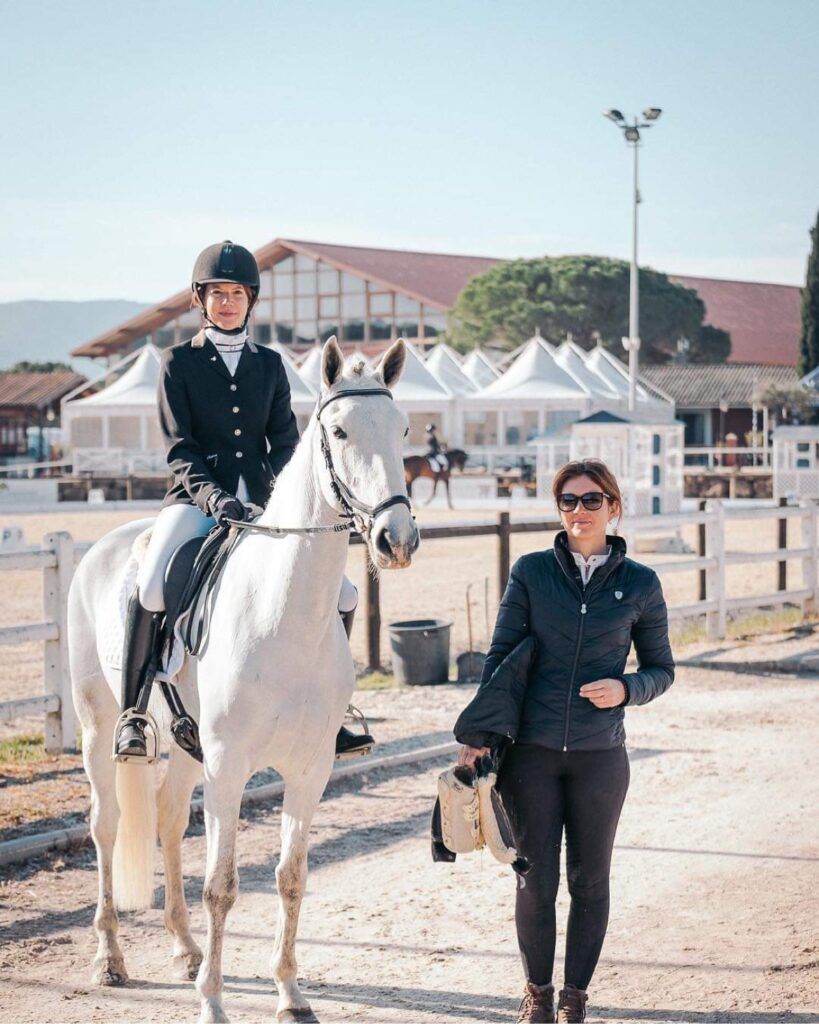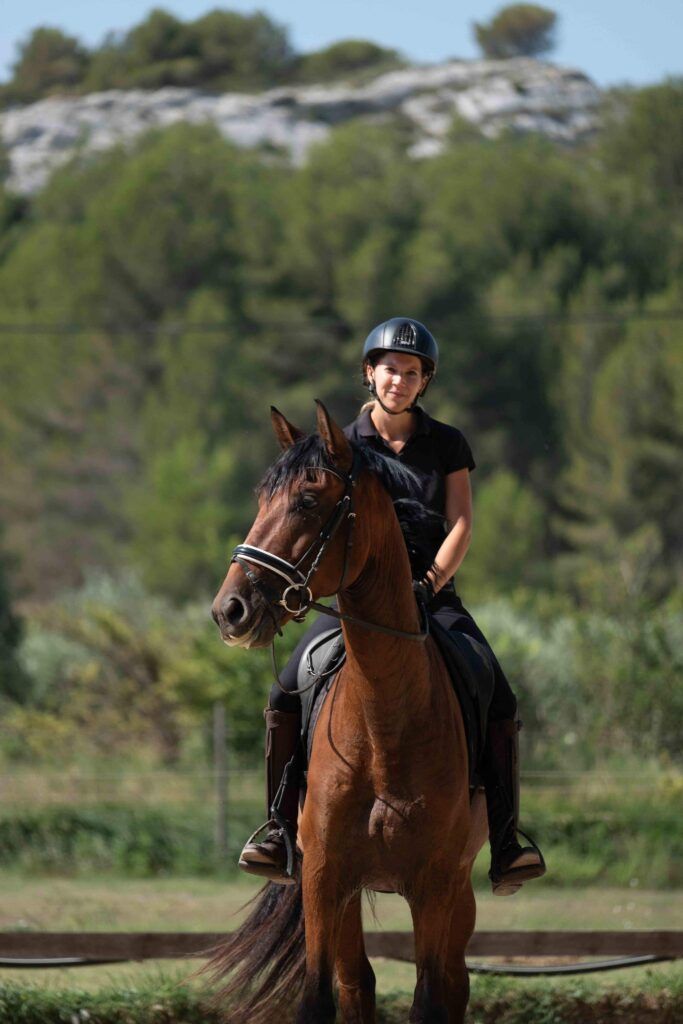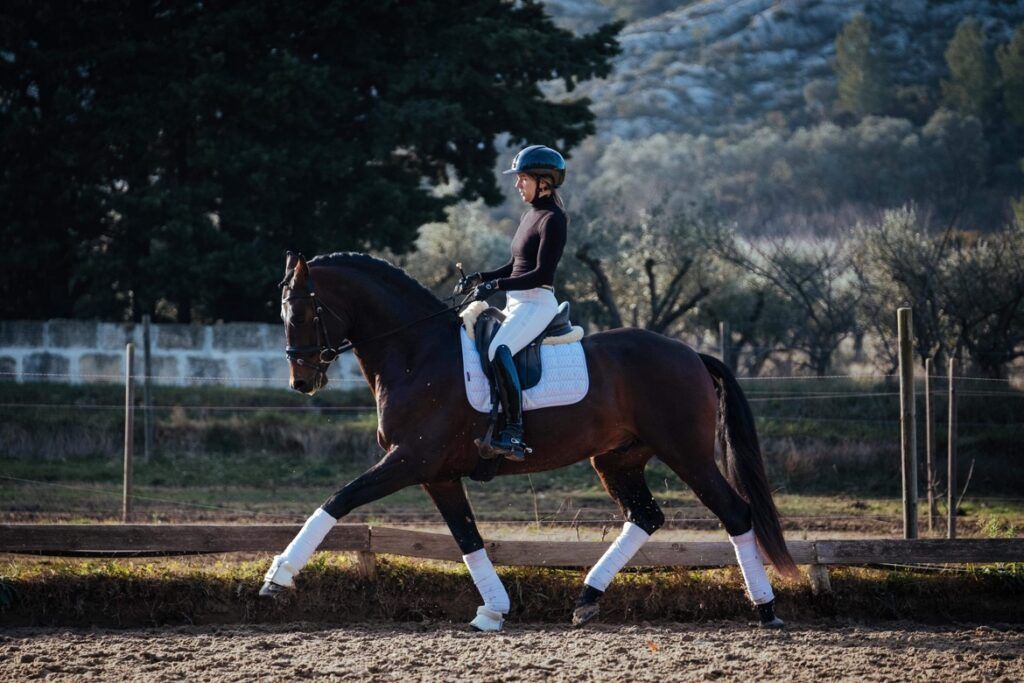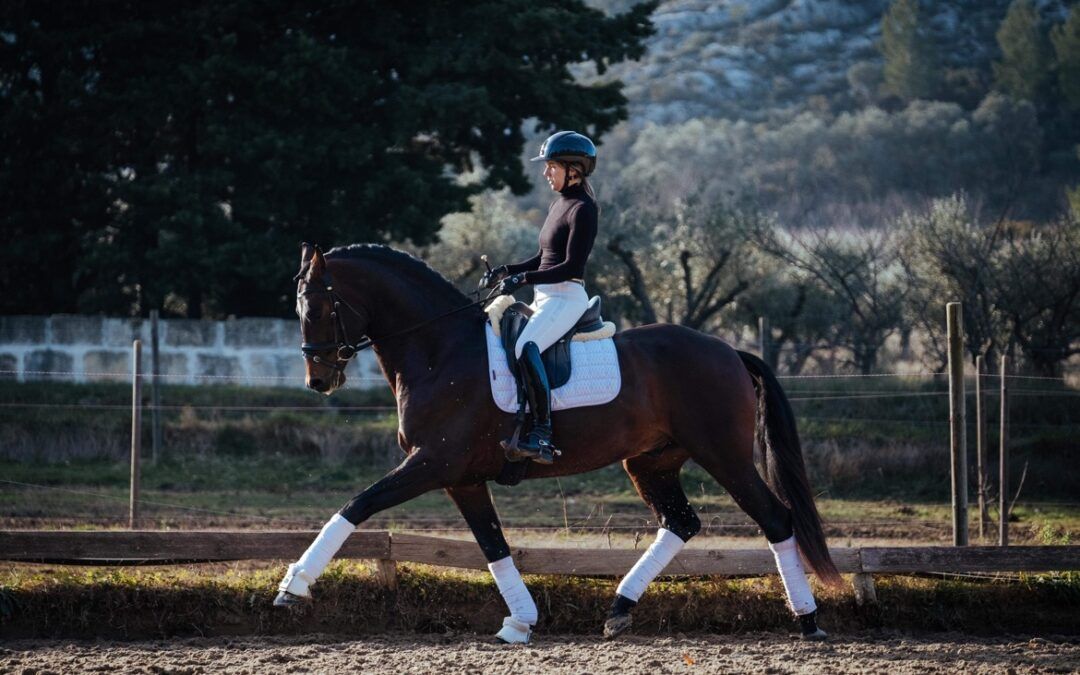“The Coussoul horses are ones we truly appreciate. They’re good-natured, kind horses that are very close to humans. Depending on their bloodlines and temperament, they can suit all types of riders—whether for leisure or sport.”
Each month, discover news from the Haras or interviews with riders who represent us around the world! We continue this series with Alice and Agathe André, professional riders and owners of Écurie du Castillon, where they work with and train no fewer than six horses from the Coussoul breeding.
Hello and thank you for agreeing to answer our questions. Could you tell us a bit about your training and background?
To sum up our journey: Alice and I have been riding since the age of four, and we’ve always loved animals.
Our mother opened a riding school and trail riding center in 2006. Alice immediately knew she wanted to work with horses. She earned two BPJEPS certifications—one in equestrian tourism and one in riding instruction—before going on to complete a diploma in dressage coaching.
As for me, I initially pursued law studies. I earned my Master’s degree in Criminal Law and Private Law in 2013 and worked for a few years in the legal field. But I quickly realized it wasn’t the right path for me and soon found my way back to the stables!
In 2019, our mother—ready for a career change—sold us her stables located in the Alpilles, in Paradou. Alice and I share a strong bond and a common passion for dressage and sport, so we naturally reoriented the stable’s focus in that direction.
Since then, we’ve been training young horses and more advanced horses for competition.
Alice was awarded the title of French Champion for Young Horses (CL3) in 2019, and I was Vice Champion of France (CL1) in 2021.

You are professional dressage riders — can you tell us more about how your horses live and what your training schedule looks like?
For us, it is absolutely essential that our horses receive the best possible care. They go out to the paddock every day, all day, and sleep in stalls at night. As for their training schedule, they work between 4 and 6 times per week, depending on their age.
The 4-year-olds train 4 times a week, while horses aged 5 and up train 5 to 6 times. Each horse has at least one longeing session per week, and groundwork is, in our opinion, just as important as ridden work.
Tell us about how you first discovered the horses from Haras du Coussoul.
We first encountered the Coussoul horses in 2014, the year we bought Evora du Coussoul, a lovely mare who immediately won us over with her kindness and energy.
Today, we can almost joke that our stable is a Coussoul satellite branch! We currently have no fewer than six horses from the Haras in our program.
-
Evora now belongs to one of our students. Her 16-year-old owner competes with her and finished 6th last year in the Amateur 2 category of the Sud Dress Tour. This year, their goal is to move up to the B2 and B1 tests.
-
Horatio du Coussoul, a 7-year-old gelding, competes with his owner in Amateur 3 tests and placed 3rd in this year’s Sud Dress Tour. Next season, they aim to compete at the C2 and C1 levels.
-
Foujita du Coussoul, 8 years old, is a true joy for her owner and also competes regularly.
-
Javelot and Othello, both aged 5, along with Gatsby’s Boy, a 4-year-old, are owned by Reale Horses and are currently under my saddle for training and development.

Through your various experiences with Coussoul horses, have you noticed any common traits?
We have a deep appreciation for the Coussoul horses. They are lovely horses—very kind and incredibly connected to humans.
Depending on their bloodlines and temperament, they can suit all types of riders, whether for leisure or sport.
What differences do you see between the crossbreeds and the purebred Lusitanos (PSL)?
We have two crossbreeds at the stables: Othello and Gatsby’s Boy.
We really love these horses—they’ve inherited what we believe to be the best of both worlds: the strength of the Lusitano combined with the suppleness and focus of German or Dutch bloodlines.
We can’t really say we prefer crossbreeds over purebreds—it’s completely different!
What would you recommend for someone buying their first competition horse?
For a first purchase, it’s most important to find a horse that matches your level, and above all, to be well supported.
To us, the most essential trait is a good character and willingness to work. If the horse also has good movement, then that’s a real bonus!
Have you had a “love at first sight” moment with a Coussoul horse?
Oh, our love at first sight… That one’s easy!
We met Othello du Coussoul last February—a crossbred by Sandreo and Pallas du Coussoul.
I immediately felt this horse’s incredible qualities, and when I came back, I told Alice I had found an exceptional horse.
Didn’t take long to convince her either!
We absolutely adore Othello—he has a golden temperament and gaits that make you dream.
He now belongs to Reale Horses, with whom we work closely.
Othello competed in the CL1 tests this season and is a horse that really appeals to the judges.
We even received a fantastic score of 87% during our debut at the Pompadour competition.
The plan for him is to compete in the 5-year-old Classic Cycles this year.
Our shared ambition is to take Othello to the highest level, while always respecting his well-being.
 Agathe André riding Othello du Coussoul (owned by Reale Horses)
Agathe André riding Othello du Coussoul (owned by Reale Horses)
What are the biggest challenges in the life of a professional rider?
Being a professional rider requires a great deal of discipline and consistency.
For us, the most important thing is to love what we do and to be well supported.
We’re lucky to have a very strong bond between the two of us, and to be surrounded by family, friends, and owners who support us and trust us.
On top of that, we have some truly fantastic horses at the stables—each one of them very interesting to work with.
To be honest, we don’t really think in terms of “challenges”—we’ll just keep doing what we love, and see where the journey takes us!

